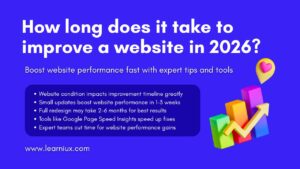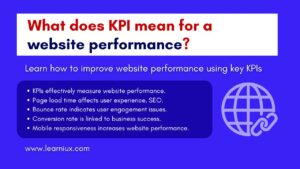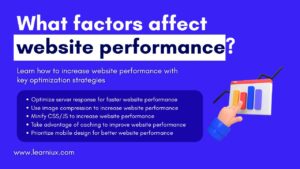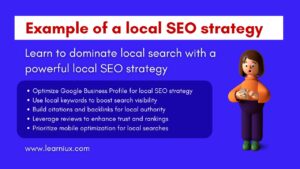Introduction
In the rapidly evolving world of digital marketing, search engine optimization (SEO) tools are constantly adopting cutting-edge technology. Drones, once known primarily for aerial photography, surveillance, and delivery services, are emerging as a transformative tool for verifying local businesses. Their ability to capture high-resolution imagery and precise location data offers a new approach to ensuring the authenticity and accuracy of business listings. This article explores the potential of unmanned aerial vehicles (UAVs) to revolutionize the SEO verification process, increasing the online visibility of local businesses while addressing long-standing challenges in traditional methods. By integrating drone technology, SEO platforms can provide faster, more reliable, and cost-effective solutions, benefiting businesses of all sizes, from small local shops to large multinational chains.
The importance of local SEO cannot be overstated in today’s hyper-connected world, where consumers increasingly rely on search engines and map services to find nearby businesses. Accurate verification ensures that businesses appear correctly in search results, maps, and directories, driving foot traffic and online engagement. Drones, with their advanced imaging and GPS capabilities, could redefine how SEO tools confirm physical locations, streamline operations, and build trust with both businesses and consumers. This comprehensive exploration will cover the current state of SEO verification, challenges, the role of drones, their integration with SEO platforms, and the potential impact on local businesses, real-world applications, and future considerations.
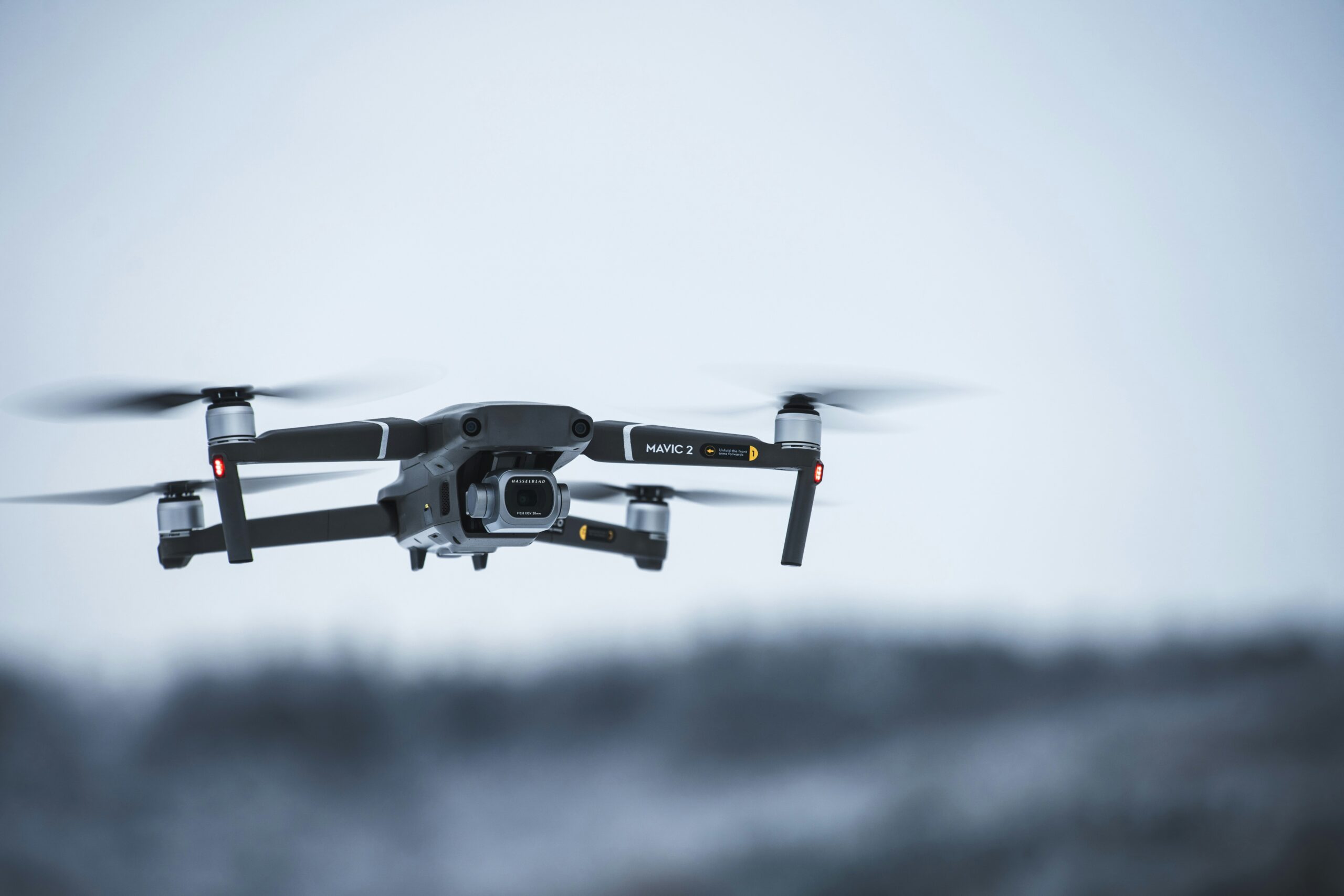
Understanding SEO Verification for Local Businesses
SEO verification is the process of confirming a business’s physical presence, address, and operational details to ensure its legitimacy and accuracy in online listings. This is especially important for local businesses, as search engines like Google prioritize verified listings in local search results, which directly impacts customer behavior. Verification typically involves checking details like a business’s name, address, phone number (NAP), hours of operation, and physical storefront presence. Traditionally, this process has relied on manual methods, including phone calls, user-submitted photos, postcards sent to physical addresses, or third-party data aggregation. However, these methods are often slow, labor-intensive, and error-prone, especially for businesses in remote or underserved areas.
Accurate verification has become more important than ever with the rise of local search. According to recent studies, more than 46% of Google searches are for local intent, and 88% of consumers who perform a local search on their smartphone visit or call a store within 24 hours. Verified listings not only increase a business’s chances of appearing in the coveted “local pack” (the top three results displayed in Google Maps), but they also increase customer trust by ensuring accurate and up-to-date information. For local businesses, this increases visibility, foot traffic, and revenue. However, the verification process is fraught with challenges that limit its efficiency and effectiveness, creating the need for innovative solutions like drone technology.
Challenges in Verifying Local Businesses
There are several obstacles that hinder the accuracy and scalability of SEO tools when verifying local businesses. A major issue is the spread of inaccurate or outdated information. Businesses can relocate, change ownership, or update their hours without promptly updating their online profiles, causing discrepancies. Fraudulent listings also pose a significant problem, as bad actors can create fake business profiles to manipulate reviews or mislead customers. These issues reduce the credibility of search engines and directories, which can harm legitimate businesses.
Another challenge is the difficulty in verifying businesses in remote or hard-to-reach locations. Rural areas, industrial areas, or regions with poor infrastructure often lack the resources for on-site inspections, making it expensive and time-consuming for SEO platforms to confirm details. Even in urban areas, manual verification methods such as sending postcards or relying on user-submitted photos can be unreliable. For example, photos can be blurry, old, or manipulated, while postcards can be lost in transit or claimed by unauthorized parties.
Third-party data sources commonly used by SEO tools can also cause discrepancies. Aggregators like Yext or Moz Local pull information from multiple databases, which can conflict or contain errors. Additionally, relying on human moderators to review submissions increases the time and cost of verification. These challenges highlight the need for a more automated, scalable, and accurate approach to verifying local businesses, which drones can potentially provide.
Benefits of Accurate Verification for Local Businesses
Accurate verification offers numerous benefits for local businesses, which directly impact their online visibility and results. First, verified listings rank higher in local search results, making it easier for potential customers to find your business. For example, businesses with a complete and accurate Google My Business profile are 2.7 times more likely to be considered reputable by customers and 70% more likely to attract location visits. This is especially important for small businesses competing with large chains or online-only retailers.
Verification also builds customer trust. When customers see consistent NAP details, high-quality images, and verified reviews, they are more likely to engage with your business. Accurate listings reduce the risk of customers arriving at the wrong address or finding a closed storefront, which can damage a business’s reputation. Furthermore, proper verification helps combat review manipulation and fraudulent listings, ensuring a level playing field for legitimate businesses.
For multi-location businesses, consistent verification across all branches strengthens brand identity and improves the customer experience. This enables businesses to use local SEO strategies, such as geo-targeted keywords and localized content, to attract nearby customers. In short, effective verification is the cornerstone of local SEO, which increases traffic, trust, and revenue for businesses of all sizes.
Drones’ Role in Enhancing SEO Tools
Drones offer a unique solution to the challenges of SEO verification by combining advanced imaging, GPS accuracy, and automation capabilities. Equipped with high-resolution cameras, drones can capture detailed aerial and ground images of business premises, including storefronts, signage, parking areas, and the surrounding environment. This visual data can be used to confirm a business’s physical existence, verify its address, and ensure that its online profile matches its real-world presence. As drone technology becomes more affordable and regulations evolve, their integration into SEO workflows is becoming increasingly feasible.
The use of drones in verification is not entirely new. Industries such as real estate, agriculture, and logistics have already adopted drones for tasks such as property inspections, crop monitoring, and inventory tracking. In the context of SEO, drones can serve a similar purpose by providing real-time, high-quality data that eliminates the need for manual inspections or unreliable user submissions. This section explores how drones can enhance SEO tools and streamline the verification process.
How Drones Capture Data for Local Businesses
Drones are uniquely suited to collecting comprehensive data for SEO verification. Modern drones are equipped with 4K cameras, thermal sensors, and GPS systems that enable precise location tracking and detailed imaging. When sent to a business location, a drone can capture a 360-degree view of the area, including exterior signage, hours of operation displayed on doors, and other identifying features. For example, a drone can take a picture of a restaurant’s storefront to confirm its name and address, or a retail store’s parking lot to verify that it matches its listed amenities.
Advanced drones also incorporate artificial intelligence (AI) and machine learning algorithms to analyze the captured data in real time. For example, AI can recognize business logos, extract text from signs (using optical character recognition), and compare these details to the business’s online profile. This automation reduces the need for human moderators, speeds up the verification process, and reduces errors. Additionally, drones can operate in challenging environments, such as rural areas or densely populated urban settings, where traditional verification methods may be impractical.
Data collected by drones can be securely sent to SEO platforms for processing. For example, a drone can capture photos of a coffee shop’s exterior, its website, and its hours of operation, and send this data to a platform like Google My Business. The platform can then cross-reference the images with the details submitted by the user to confirm accuracy. This process not only ensures accuracy, but also allows for real-time updates, such as changes to operating hours or temporary closures.
Integrating Drone Technology with SEO Platforms
Integrating drones with SEO tools requires collaboration between technology providers, SEO platforms, and drone operators. One possible model is for SEO companies to partner with drone service providers to offer on-demand verification services. A business owner can submit their location details through an SEO platform, which will trigger a drone dispatch to a specified address. The drone will then capture the necessary data and send it back to the platform for automated analysis.
For example, Google My Business could integrate a “drone verification” option, where businesses pay a small fee for a quick verification via drone. The captured images will be processed using AI to confirm details such as address, signage, and storefront appearance. Once verified, the business listing will be updated in real time, ensuring immediate visibility in search results. This approach can also be extended to other platforms such as Yelp, Bing Places, or Apple Maps, creating a standardized verification process across the industry.
Another integrated approach involves developing drone-specific APIs for SEO tools. This API will allow platforms to request drone services, receive data, and incorporate it into their verification workflow. For multi-location businesses, SEO platforms can schedule drone flights to verify multiple branches at once, ensuring consistency across all listings. Such integration will not only improve efficiency but also open up new revenue streams for SEO companies through premium verification services.
Potential Impact on Local Businesses
Adopting drone technology in SEO verification could have a profound impact on local businesses, especially those in underserved or competitive markets. Small businesses that often lack the resources for professional photography or on-site inspections can benefit from cost-effective drone verification. Larger businesses with multiple locations can maintain consistent branding and accurate listings with minimal effort. However, ensuring widespread adoption will require addressing challenges such as privacy concerns, regulatory compliance, and implementation costs.
Benefits for Small Local Businesses
Small businesses, especially those in rural or less accessible areas, can benefit significantly from drone-assisted verification. Traditional verification methods often give urban businesses easy access to inspectors or high-quality user submissions. However, drones can easily reach remote locations, capturing accurate data without expensive site visits. For example, a family-owned bakery in a rural town can use drone verification to confirm its address and storefront, ensuring its Google listing is accurate and competitive.
Drone verification is also cost-effective compared to hiring professional photographers or relying on third-party services. A single drone flight can capture all the necessary data in minutes, reducing the time and costs associated with manual verification. This efficiency allows small businesses to update their listings faster, reflecting changes such as new signage, renovations, or seasonal displays. As a result, these businesses can improve their local SEO rankings, attract more customers, and compete with larger chains.
Furthermore, drone verification increases credibility. Verified listings with high-quality, up-to-date images are more likely to attract clicks and conversions. For example, a verified listing with clear photos of the storefront and parking lot can reassure customers about the legitimacy of the business, encouraging them to visit. This is especially important for industries like hospitality, retail, and food services, where visual appeal plays a significant role in the customer decision-making process.
Considerations and Future Outlook for Local Businesses
While the benefits of drone verification are clear, several factors need to be addressed to ensure its success. Privacy is a major concern, as drones capturing images of private property can pose legal and ethical issues. Businesses and consumers may be concerned about unauthorized surveillance or data misuse. To mitigate these concerns, SEO platforms should implement strict data privacy policies, ensuring that images captured by drones are used only for verification purposes and are stored securely.
Regulatory compliance is another hurdle. Drone operations in many countries are subject to strict regulations, including restrictions on flying over private property or in urban areas. SEO platforms and drone operators must comply with these laws to avoid fines and ensure safe operations. For example, in the United States, the Federal Aviation Administration (FAA) requires commercial drones to operate within specific guidelines, including height limits and no-fly zones. Other regions have similar regulations, which require careful planning for drone deployments.
Cost is also a factor. While drones are more affordable than traditional verification methods, the initial investment in drone fleets, software, and operator training can be significant for SEO companies. These costs can be passed on to businesses, which can limit their use in smaller industries. However, as drone technology becomes more widespread and the economy reduces costs, this barrier is likely to decrease.
Looking ahead, advances in drone autonomy and AI could make verification even easier. Fully autonomous drones can operate without a human pilot, reducing costs and increasing scalability. AI-powered image analysis could further automate the verification process, allowing SEO platforms to handle thousands of verifications per day. As these technologies mature, drone verification could become a standard feature of local SEO, changing how businesses manage their online presence.
Case Studies and Real-World Applications
While drone verification for SEO is still an emerging concept, several industries have successfully adopted drones for similar purposes, providing a blueprint for its use in SEO. For example, in logistics, companies like Amazon and UPS use drones for inventory tracking and warehouse inspections, capturing data that ensures operational accuracy. In real estate, drones are used to verify property details such as lot size and building conditions for online listings. These applications demonstrate the potential of drones to provide accurate, scalable solutions for SEO verification.
Examples of Successful Drone Verifications at Local Businesses
A notable case study is that of a national retail chain that partnered with a drone service provider to verify their store locations across multiple states. The chain, which operates over 200 stores, faced challenges in maintaining consistency in online listings due to frequent renovations and rebranding. By deploying drones to capture up-to-date images of each store, the company reduced verification time by 70% and improved the accuracy of their Google My Business profile. The high-quality images also increased the visual appeal of their listings, which led to a 15% increase in customer inquiries.
Another example comes from the hospitality sector, where a boutique hotel chain used drones to verify amenities at their properties. The drone captured aerial views of pools, parking lots, and outdoor seating areas, confirming their existence and condition. This data was used to update the chain’s listings on platforms like Yelp and TripAdvisor, resulting in high engagement and positive reviews. The process also allowed the chain to identify discrepancies, such as outdated photos, and quickly remove them.
In a pilot program run by the municipal government, drones were used to verify business details for a local business directory. The program targeted small businesses in underserved areas, capturing data on storefronts, signage, and accessibility features. The resulting directory provided residents with accurate, up-to-date information, increased local business, and demonstrated the potential of drone verification in public-private partnerships.
Conclusion
The integration of drones into SEO tools represents a significant opportunity to increase local business verification. Leveraging high-resolution imaging, GPS accuracy, and AI-driven analytics, drones can overcome the limitations of traditional verification methods, resulting in faster, more accurate, and scalable solutions. For local businesses, this technology promises to improve online visibility, increase customer trust, and provide a competitive edge in local search results.
Small businesses in particular benefit from cost-effective verification that levels the playing field, while larger enterprises can maintain consistency across multiple locations. However, challenges such as privacy, regulatory compliance, and implementation costs must be carefully managed to ensure widespread adoption. As drone technology evolves, its integration with SEO platforms could become a standard practice, shaping the landscape of local SEO.
Real-world applications in logistics, real estate, and municipal planning provide a strong foundation for drone verification in SEO. By learning from these examples and addressing potential obstacles, SEO platforms can unlock the full potential of drones, delivering value to both businesses and consumers. As we move towards a more connected and digital future, the use of innovative tools like drones will be key to ensuring the authenticity and accuracy of local business listings, driving growth, and building trust in the online ecosystem.
FAQs
How can drones help verify local businesses for SEO purposes?
Drones can help verify local businesses by capturing high-resolution aerial and ground images of business premises, including storefronts, signage, and surrounding areas. Equipped with advanced cameras and GPS, drones provide accurate visual data to confirm a business’s physical location and details. These images can be analyzed using AI to verify details like business names, addresses, and hours of operation against online listings. Unlike traditional methods, drones offer a faster and more accurate way to collect real-time data, especially for remote or hard-to-reach locations. This process reduces the reliance on manual inspections or user-submitted photos, which can be unreliable or outdated. SEO platforms can aggregate this data to instantly update listings, improving search visibility. For businesses, this means increased trust and credibility with customers. Drones also enable scalability, allowing platforms to efficiently verify multiple locations. This technology streamlines the verification process, which benefits both SEO tools and local businesses.
What challenges do traditional SEO verification methods face for local businesses?
Traditional SEO verification methods face several challenges that impact their efficiency and accuracy for local businesses. Manual processes such as phone calls, postcards, or user-submitted photos are time-consuming and prone to errors. Incorrect or outdated information, such as incorrect addresses or hours, can cause discrepancies in online listings. Fraudulent listings created by bad actors further complicate verification, reducing search engine credibility. Remote or rural businesses are particularly difficult to verify due to logistical difficulties, making on-site inspections expensive. Third-party data sources often introduce inconsistencies, as they can aggregate conflicting information. Human moderators reviewing submissions add delay and cost. These challenges highlight the need for automated, scalable solutions such as drones to ensure accurate verification. By addressing these issues, businesses can maintain a credible online profile and improve local search rankings.
What are the benefits of drone-assisted verification for small local businesses?
Drone-assisted verification offers significant benefits for small local businesses, especially those with limited resources. Drones can capture accurate, high-quality images of storefronts and signage, confirming details without the need for expensive professional photographers or on-site visits. This is especially valuable for businesses in rural or underserved areas, where traditional verification is challenging. Accurate listings improve local SEO rankings, drive more foot traffic and customer inquiries. Verified profiles with clear images increase customer trust, encourage engagement and conversions. Drones also allow businesses to update listings faster, reflecting changes such as renovations or seasonal displays. The cost-effectiveness of drone verification levels the playing field, enabling small businesses to compete with larger chains. Additionally, automation of the process reduces verification time, providing faster results. Overall, drones enable small businesses to maintain a strong, reliable online presence.
How do drones improve the accuracy of SEO tools for local businesses?
Drones improve the accuracy of SEO tools by providing real-time, high-resolution visual data that confirms the physical presence and details of a business. Equipped with 4K cameras and GPS, drones capture precise images of storefronts, signage, and other identifying features. AI-powered analytics compare this data to online listings to identify discrepancies such as incorrect addresses or outdated hours. Unlike user-submitted photos, which can be blurry or manipulated, drone imagery is reliable and consistent. This reduces verification errors and ensures that listings reflect current reality. Drones can also access hard-to-reach locations, ensuring comprehensive coverage. By automating data collection and analysis, drones reduce human error and streamline the process. This accuracy increases the credibility of SEO platforms and increases local business visibility. Ultimately, drones enable SEO tools to deliver reliable, up-to-date information to customers.
What role does AI play in drone-based SEO verification for local businesses?
AI plays a crucial role in drone-based SEO verification by analyzing images and data captured by drones. Advanced algorithms can identify key features such as business logos, signage text, or storefront layouts using optical character recognition and image recognition. This allows for automated comparisons between drone-captured data and online business profiles to ensure accuracy. AI reduces the need for human moderators, speeds up the verification process, and reduces errors. For example, it can detect discrepancies in operating hours or address details in real time. AI also enables scalability, allowing SEO platforms to efficiently process large volumes of verification requests. Combined with drone technology, AI ensures consistent and reliable results across locations. This combination increases the accuracy of SEO tools, which benefits local businesses. Ultimately, AI-powered analysis makes drone verification a powerful tool for maintaining accurate online listings.
Are there privacy concerns when using drones to verify local businesses?
Yes, privacy concerns are a significant consideration when using drones to verify local businesses. Capturing aerial imagery of private property can raise questions about unauthorized surveillance or data misuse. Businesses and nearby residents may be concerned that drones are recording sensitive information or invading personal space. To address these concerns, SEO platforms should implement strict data privacy policies, ensuring that drone imagery is used only for verification purposes. It is also essential to comply with local drone regulations, such as restrictions on flying over private property. Transparent communication with businesses about the verification process can build trust and reduce concerns. Additionally, secure data storage and anonymization techniques can protect sensitive information. By prioritizing privacy, SEO platforms can reduce risk and encourage adoption. Overall, balancing ethical considerations with technical benefits is key to successful drone verification.
How can SEO platforms integrate drone technology for local businesses?
SEO platforms can integrate drone technology by partnering with drone service providers to provide on-demand verification services. Businesses can submit their details through the platform, which will trigger a drone dispatch to capture an image of the location. The data will then be processed using AI to verify details such as address, signage, and hours, updating listings in real time. APIs can facilitate seamless communication between SEO tools and drone operators, streamlining workflows. Platforms like Google My Business or Yelp can offer premium drone verification as a paid feature, which enhances the user experience. For multi-location businesses, coordinated drone flights can ensure consistency across all branches. This integration reduces manual effort and improves accuracy. It also opens up new revenue streams for SEO companies. Ultimately, such partnerships make drone verification scalable and accessible for local businesses.
What are the regulatory challenges of using drones for SEO verification?
Using drones for SEO verification involves addressing complex regulatory challenges that vary by region. Many countries impose strict regulations on commercial drone operations, including height limits, no-fly zones, and restrictions on flying over private property. For example, in the United States, the Federal Aviation Administration requires drones to operate within specific guidelines, such as maintaining line of sight with the operator. Obtaining permits for urban or residential areas can be time-consuming and expensive. Non-compliance can result in fines or operational bans, which can disrupt verification services. To ensure compliance, SEO platforms should work with licensed drone operators who are familiar with local laws. Clear communication with businesses about regulatory requirements is also essential. As drone regulations evolve, it is critical to stay up-to-date for seamless integration. Addressing these challenges ensures safe and legal drone use for verifying local businesses.
How do drones compare to traditional verification methods for local businesses?
Drones offer several advantages over traditional verification methods for local businesses, such as postcards, phone calls, or user-submitted photos. Unlike manual methods, drones provide real-time, high-quality imagery that confirms business details with greater accuracy. They can access remote or challenging locations, reducing logistical hurdles. Drone verification is faster, often completed in minutes, compared to weeks for postcard delivery or manual reviews. The use of AI automation reduces human error and greatly speeds up the process. Traditional methods tend to have inconsistencies such as outdated photos or fraudulent submissions, while drones provide reliable data. However, drones face challenges such as regulatory compliance and upfront costs that traditional methods avoid. Despite this, the efficiency and accuracy of drones make them a great option. For local businesses, this translates into faster, more accurate online visibility.
What is the future outlook for drone verification in SEO for local businesses?
The future of drone verification in SEO for local businesses is promising, driven by advances in drone technology and AI. As drones become more autonomous and affordable, their adoption for verification is likely to increase, making the process easier for small businesses. Improved AI algorithms will enhance data analysis, enabling faster and more accurate verification. Regulatory frameworks are expected to evolve, facilitating drone operations for commercial purposes. SEO platforms could integrate drone services as a standard feature, offering seamless verification for users. This could lead to widespread adoption, transforming local SEO practices. However, addressing privacy and cost issues will be key to success. Partnerships between SEO companies and drone operators will drive innovation in this area. Ultimately, drone verification could become a cornerstone of local SEO, ensuring authentic and trustworthy business listings.























